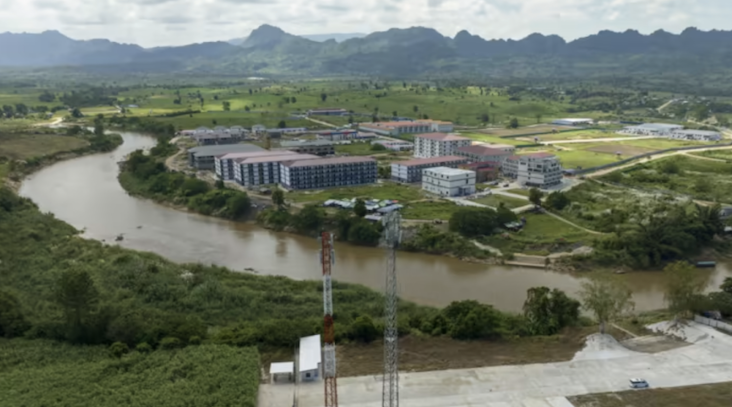Efforts to crack down on cyber scams that flourished in lawless parts of Southeast Asia have failed, according to a new report by the United Nations.
The criminal networks that emerged in Southeast Asia in recent years have grown into a multi-billion-dollar industry that has expanded globally to South America and Africa, it said, while raids in ASEAN nations have been unable to contain their activities, often because responses have been hampered by corrupt officials or civil strife.
The Asian crime gangs opening sprawling compounds housing tens of thousands of workers in countries such as Myanmar, Cambodia and Laos, have evolved into a sophisticated global industry, the UN Office on Drugs and Crime (UNODC) said in a report on Monday.
ALSO SEE: China Vows to Retaliate if Trade Deals Hurt Its Interests
The report, titled “Inflection Point: Global Implications of Scam Centres, Underground Banking and Illicit Online Marketplaces in Southeast Asia,” said many of the workers are trafficked and forced to scam victims around the world.
Generative artificial intelligence is also being used with growing frequency to enhance scam and fraud operations, UNODC said.
Even as Southeast Asian governments had intensified a crackdown, syndicates have moved within and beyond the region, the agency said, adding that a “potentially irreversible spillover has taken place… leaving criminal groups free to pick, choose, and move… as needed”.
“It spreads like a cancer,” John Wojcik, a regional analyst for UNODC, was quoted as saying, by Reuters. “Authorities treat it in one area, but the roots never disappear; they simply migrate.”
Conservative estimates indicate there are hundreds of large-scale scam farms around the world generating tens of billions of dollars in annual profits, the UNODC said.
The agency called on nations to work together and intensify efforts to disrupt the gangs’ financing.
“The regional cyberfraud industry… has outpaced other transnational crimes, given that it is easily scalable and able to reach millions of potential victims online, with no need to move or traffic illicit goods across borders,” Wojcik said.
US citizens lost billions to crypto scams
The United States alone reported more than $5.6 billion in losses to cryptocurrency scams in 2023, including so-called pig-butchering scams or romance scams designed to extort money from often elderly and vulnerable people.
In recent months, authorities from China, where many of the gangs originate, Thailand and Myanmar have led a crackdown on scam operations in lawless areas of the Thai-Myanmar border, with Thailand cutting power, fuel and internet supply to areas housing scam compounds.
But syndicates have adapted, shifting operations between “the most remote, vulnerable, and underprepared parts of Southeast Asia”, especially in Laos, Myanmar, and Cambodia, and beyond, exploiting jurisdictions with weak governance and high rates of corruption, the UNODC said.
Raids in parts of Cambodia where the industry is most visible “led to significant expansion in more remote locations”, including the country’s western Koh Kong province, as well as areas bordering Thailand and Vietnam, the UN agency said.
New sites also continue to be developed in Myanmar, it added, a country in the throes of an expanding conflict since the military seized power four years ago.
Links to South American drug cartels
Syndicates have expanded into South America, the UN agency said, seeking to enhance money laundering and underground banking partnerships with South American drug cartels.
They are increasingly establishing operations in Africa, including in Zambia, Angola, and Namibia, and in Eastern Europe including Georgia, the agency said.
Gangs have also rapidly diversified their workforce, recruiting people from dozens of nationalities, according to the agency, reflecting how the industry scams targets across the globe and has sought to evade anti-trafficking efforts.
Citizens of more than 50 countries – from Brazil to Nigeria, Sri Lanka and Uzbekistan – were rescued during recent crackdowns on the Thai-Myanmar border.
- Reuters with additional input and editing by Jim Pollard
























